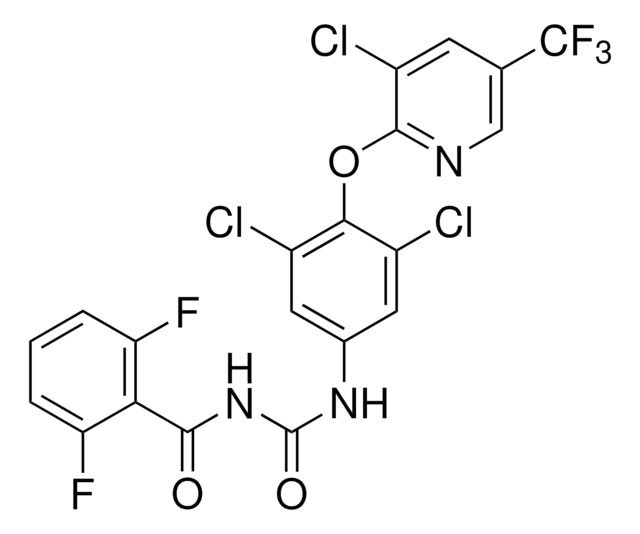46262
1,1,2-Trichloroethane
analytical standard
About This Item
Prodotti consigliati
Grado
analytical standard
Durata
limited shelf life, expiry date on the label
tecniche
HPLC: suitable
gas chromatography (GC): suitable
Indice di rifrazione
n20/D 1.471 (lit.)
P. eboll.
110-115 °C (lit.)
Densità
1.435 g/mL at 25 °C (lit.)
applicazioni
cleaning products
cosmetics
environmental
food and beverages
personal care
Formato
neat
Stringa SMILE
ClCC(Cl)Cl
InChI
1S/C2H3Cl3/c3-1-2(4)5/h2H,1H2
UBOXGVDOUJQMTN-UHFFFAOYSA-N
Cerchi prodotti simili? Visita Guida al confronto tra prodotti
Applicazioni
Avvertenze
Danger
Indicazioni di pericolo
Classi di pericolo
Acute Tox. 3 Inhalation - Acute Tox. 4 Dermal - Acute Tox. 4 Oral - Aquatic Chronic 3 - Carc. 2
Rischi supp
Codice della classe di stoccaggio
6.1C - Combustible acute toxic Cat.3 / toxic compounds or compounds which causing chronic effects
Classe di pericolosità dell'acqua (WGK)
WGK 3
Dispositivi di protezione individuale
Eyeshields, Faceshields, Gloves, type ABEK (EN14387) respirator filter
Choose from one of the most recent versions:
Possiedi già questo prodotto?
I documenti relativi ai prodotti acquistati recentemente sono disponibili nell’Archivio dei documenti.
I clienti hanno visto anche
Il team dei nostri ricercatori vanta grande esperienza in tutte le aree della ricerca quali Life Science, scienza dei materiali, sintesi chimica, cromatografia, discipline analitiche, ecc..
Contatta l'Assistenza Tecnica.












